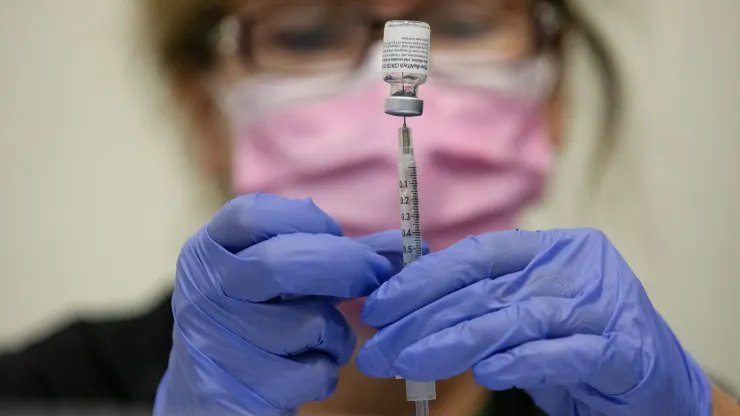
The Food and Drug Administration hasn’t found an increased risk of stroke for seniors who’ve received Pfizer’s omicron booster shot, a federal health official said Thursday.
The FDA launched an extensive review of federal data after investigators at the Centers for Disease Control and Prevention detected a possible risk of stroke for seniors who received Pfizer’s booster.
The CDC’s Vaccine Safety Datalink, which monitors serious reactions to vaccines, showed a possible risk of stroke in late November. The FDA independently looked at data from the Centers for Medicare and Medicaid Services and its Vaccine Adverse Event Reporting System.
“So far the data that we have seen suggests the absence of a safety risk for the bivalent boosters in age 65 years and older,” Richard Forshee, deputy director of the FDA’s biostatistics office, told the agency’s independent vaccine committee.
The FDA reviewed CMS data from 4.25 million seniors who received Pfizer’s omicron booster and did not identify any increased stroke risk. The agency’s review of VAERS data also did not find an increased risk.
The Department of Veterans Affairs has also conducted preliminary review of its database and did not identify an increased stroke risk, Forshee said. The FDA also reached out to international partners and Pfizer to find out what they observed in their data.
“We contacted a number of our international regulatory agencies, and various countries in Europe as well as Israel have indicated no increased risk of stroke on their surveillance systems,” Forshee told the FDA committee.
“We also contacted Pfizer and they consulted their global safety database and they did not see any increase or a signal for ischemic stroke in their systems,” Forshee added.
CDC investigators found that 130 seniors suffered strokes in the 21 days after receiving Pfizer’s booster among about 550,000 recipients in the VSD database. One man in his 70s died a month after the stroke which was his likely cause of death, according to data presented Thursday.
Dr. Nicola Klein, the main investigator of the CDC’s Vaccine Safety Datalink, said a statistical signal indicating a potential stroke risk was first identified in late November and has persisted through January, though the signal’s strength has eased somewhat.

